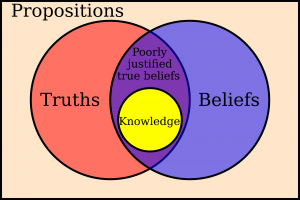ROBERT BEDDOR

Assistant Professor Robert Beddor (Department of Philosophy) was recently granted the FASS Award for Promising Researcher (APR). This award is presented to researchers who have produced research that shows potential impact and promise.
Dr Beddor studies issues in epistemology, philosophy of language, and metaethics. His work with the concepts of justification, certainty, disagreement, and defeat is marked by inventive deployment of the resources of contemporary formal epistemology and philosophy of language to examine problems in theory of knowledge and related areas. He has published seven single-authored articles and three co-authored in prestigious journals such as Philosophical Studies, Semantics and Pragmatics, Nous, The Philosophical Quarterly, and Philosophy and Phenomenological Research. Dr Beddor has 177 citations and an h-index of 6 (Google Scholar). His current project deals with restoring the concept of certainty to its former centrality in epistemological discussion.
We congratulated Dr Beddor and spoke to him about his research work.

1. What initially drew you to the field of epistemology?
I was was first gripped by epistemological questions back when I was a teenager (though at the time I wouldn’t have known to call them “epistemological”). I grew up in a religious household. Like many a teenager before me, I started to wonder whether I could know that any of the religious claims I had been taught were true. And this in turn led me to grapple with the more general question of whether we can know anything, and – if so – how that knowledge is possible. These questions are the bread and butter of epistemologists.
2. How does your model of subjective discourse contribute to the metaethical debate on morality’s objectiveness?
One of the main questions in metaethics is whether morality is objective or subjective. However, I think that it’s far from obvious what this question really means. By developing more precise models of subjective discourse – and moral discourse in particular – we can help clarify the question, and thus better appreciate what it would take to answer it.

To go into a bit more detail: one strand of my research focuses on expressivism. Applied to moral discourse, this is the idea that when someone says e.g., “Stealing is wrong”, they are expressing a preference for people to avoid stealing. At first blush, this might seem like a subjective view of morality. After all, this view would seem to entail that there is no objective fact as to whether stealing is wrong; rather, there are just different preferences that different people can express towards stealing. But things aren’t so simple. Expressivists will retort that their view can account for the objective features of moral discourse. According to them, someone who says, “It’s an objective fact that stealing is wrong” is doing the same thing as someone who says, “Stealing is wrong”; they’re just expressing the same preference all over again. Not all philosophers are satisfied by this expressivist maneuver – far from it! But engaging with this maneuver helps us think more carefully about what it means to say that morality is objective or subjective.
3. In “Noncognitivism and Epistemic Evaluations” (Philosophers’ Imprint, 2019), you proposed the view ‘Grounding Noncognitivism’ as a novel means of resolving the Epistemic Evaluability Challenge. In it, unlike in pure noncognitivism where belief and desire are unconnected, a moral belief someone possesses is grounded in their specific desire-like attitudes. In what ways can Grounding Noncognitivism help us better understand how our particular desires shape our beliefs about what is right/good and what is wrong/evil?

In “Noncognitivism and Epistemic Evaluations”, I try to solve a puzzle that arises for the sort of expressivist view of moral discourse mentioned above. On your standard expressivist picture, moral beliefs are simply identical to certain preferences. For example, a belief that stealing is wrong is just a preference for people to avoid stealing. One puzzle for this view is that moral beliefs seem to have a lot in common with ordinary factual beliefs (e.g., a belief that earth revolves around the sun), and seem to differ from paradigmatic preferences in many respects. For example, moral beliefs can be described as true or false, and as amounting to knowledge (e.g., we talking about knowing right from wrong). But it seems misguided to describe preferences in these ways: if I prefer to have drink of water, it seems wrong to say that this preference is true, or that it qualifies as knowledge.
I propose solving this puzzle by rethinking the relation between between the moral belief and the underlying preference. The standard expressivist model takes this relation to be identity. I propose instead that the relation is grounding – a notion that I borrow from the recent metaphysics literature. To illustrate with an analogy: consider a statue made out of a lump of clay. What is the relation between the statue and the clay? It is initially tempting to say that the statue is identical to the clay from which it is made. But this view faces an analogue of the problem facing expressivists: it seems that the statue can have various properties that the clay lacks. For example, it seems that the statue can have the property of being 1 year old, or being well-executed, even if the clay lacks these properties. One solution is to say that the statue is not identical to the clay, but rather is grounded in it – i.e., the statue depends on the clay, or to put in another way, the statue exists because of the clay. Since the statue is not identical to the clay, the statue can have properties that the clay lacks. I propose an analogous solution in the moral case: moral beliefs are grounded in preferences, but not identical to them. So, for example, someone who believes that stealing is wrong holds this belief because they prefer people to avoid stealing, but the belief is not identical to the preference.

Adopting this “grounding expressivist” view raises a number of further questions. For example, what exactly is the relation between the properties of the underlying preference and the properties of the moral belief that it grounds? This is a question that I hope to explore in future work.
4. Do you see yourself as more of a relativist or an expressivist?
Relativism and expressivism are often regarded as competitors. Very roughly, whereas expressivists claim that subjective/moral assertions express the speaker’s preferences, relativists maintain that subjective/moral assertions can only be true or false relative to some agent’s perspective. However, I think that on closer examination there is much less distance between these two views than is typically assumed. Any empirically adequate version of expressivism is going to have to account for the fact that we appraise subjective/moral claims as true or false. One way to capture this in an expressivist semantics is to define a notion of truth that is relativized to an agent’s prefence function. But if expressivists go this route, then it becomes hard to see where they really disagree with relativists. Ultimately, I am sympathetic to the idea that the best version of expressivism is basically just a notational variant of the best version of relativism – though this is something that I hope to explore further in future work.

5. Which philosopher has been most influential for you?
While I’ve been influenced by many different philosophers, I think David Lewis has probably shaped my views more than any other contemporary figure. I disagree with Lewis on lots of substantive points (do any two philosophers ever completely agree?), but his writing has set the agenda for many debates in analytic philosophy. And I think he provides a great example for how to do philosophy well: his work combines grandness of vision with technical rigor and clarity of expression.
6. Which research publication are you most proud of and why?
I rather like my recent paper, “Subjective Disagreement.” It raises some difficulties for standard explanations of disagreements involving subjective discourse, and proposes a new approach that – hopefully! – makes progress on these issues.

7. What has been your most memorable teaching experience at NUS?
Philosophy has a reputation for being a solitary discipline; the lonely philosopher sequestered away in their garret is a familiar image. But I think that philosophy is most productive – and certainly most enjoyable – when it is a collaborative enterprise. To that end I try to make my classes highly interactive. For example, after introducing some objection to a particular philosophical view, I’ll often ask the students to gather in small groups to discuss whether there is any way of successfully responding to the objection. After 5-10 minutes, we’ll reassemble as a class and discuss what the various groups came up with. I’m continually impressed with the sophisticated points that my students generate in the course of these discussions. In particular, there were a couple of times when my students anticipated – or, rather, re-discovered – some of the central insights in what are now highly influential papers in the field. These were certainly among my most memorable teaching moments.
8. Lastly, what future research studies do you have in mind?
The papers we’ve been discussing fit into a broader research project, which aims to develop an empirically adequate and rigorous model of subjective discourse. Here I’m construing “subjective discourse” broadly to include taste talk (terms like “tasty”, “disgusting”), aesthetic and moral discourse, and epistemic modals (terms like “might” and “probably”). There are a number of strands of this project that I plan to pursue in future research. For example, one interesting question is whether we should expect a “one size fits all” analysis of all subjective discourse, or whether different sorts of subjective expressions require different semantic frameworks for analyzing them. For example, to what extent should we expect our semantic analysis of “might” and “probably” to resemble our semantic analysis of “wrong”, “good”, and “evil”?
I’m also beginning to embark on a related research project at the intersection of epistemology and philosophy of mind. Historically, most work in epistemology has focused on beliefs: epistemologists investigate the conditions under which beliefs are rational or irrational, justified or unjustified, and the circumstances under which they qualify as knowledge. However, belief is just one mental state among many – for example, our mental life also includes preferences, intentions/plans, hopes, fears, and regrets, to name just a few. Together with my colleague Zach Barnett, I’m working on exploring the conditions under which these “non-belief” attitudes have various normative statuses. For example, what are the conditions under which a fear or a regret qualifies as rational or irrational, justified or unjustified?
This project has implications for my work on subjective discourse. If some version of moral expressivism is true, then by getting a clearer sense of the conditions under which a preference qualifies as rational or irrational, we can better appreciate the conditions under which a moral belief qualifies as rational or irrational.
Thank you very much for taking the time to answer these questions, Dr Beddor! And congratulations again on being awarded Promising Researcher!

